Woongchul Park and Bomee Ki, Sollip
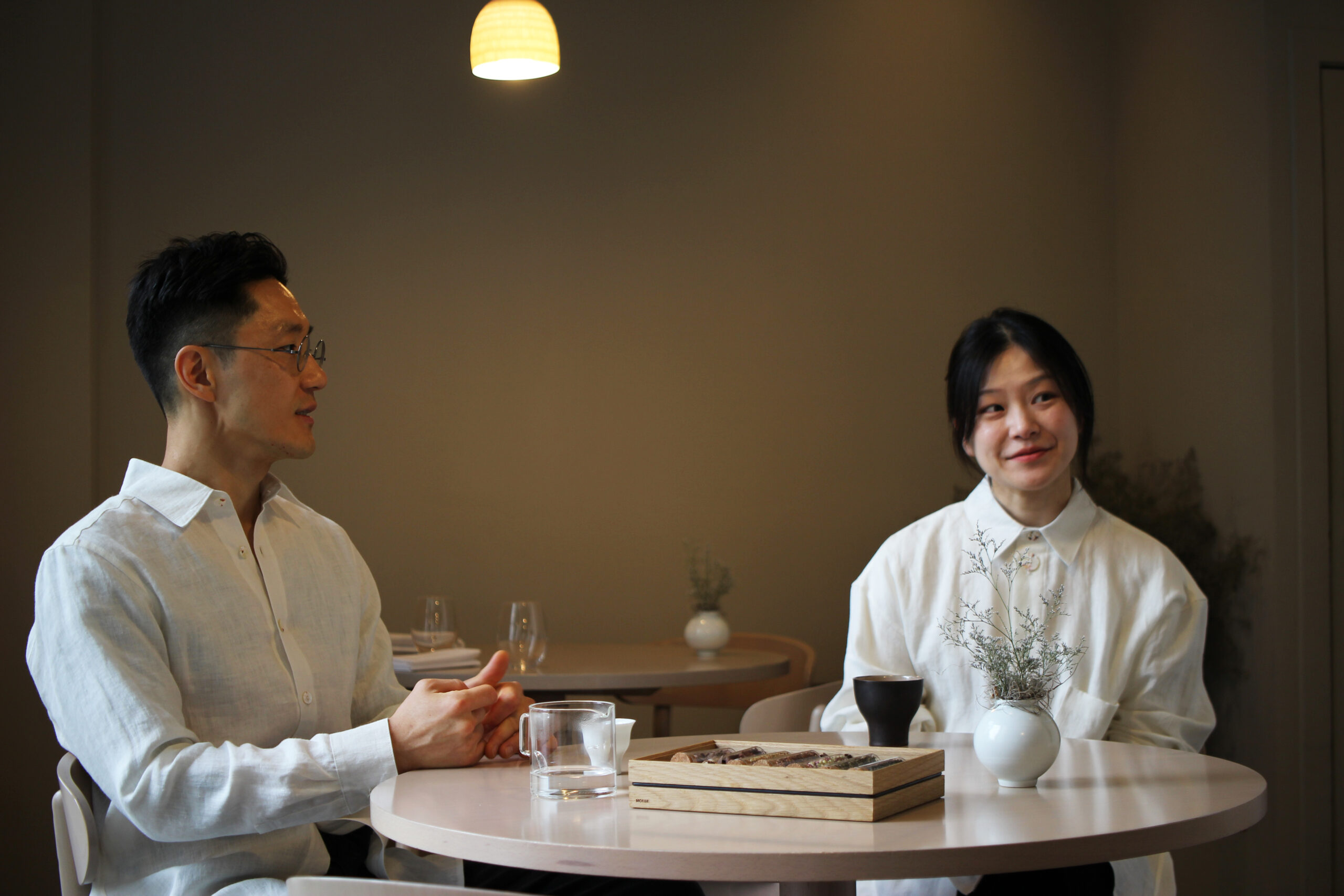
Sollip is a Michelin starred restaurant in Southwark, blending French and Korean cuisine. ‘Sollip,’ is Korean for Pine Needle, which is widely regarded as the best ingredient to control flames and smoke in traditional Korean cuisine.
Woongchul Park and Bomee Ki are husband and wife, and co-founders of Sollip. Paul sat with them and discussed cultural heritage, working with your spouse and all things craftsmanship.
PAUL MISSING (PM) : I wanted to ask you first – why did you choose the London Cordon Bleu, and not the Parisian Cordon Bleu?
Woongchul Park (WP) : So her reason is different, because at the time, they said come to London, we didn’t know each other. But for me, at the time I was agonising between CIA which is the Culinary Institute of America in the US, which is more like a college or university, which would have been 2 years of 4 years for a Bachelor’s, but I had a Bachelors already, so then I was thinking what I wanted for myself and I wanted to learn French cuisine from French people, but agewise, I was 25 or something. As a man, unless you are disabled you have to go into the army, so I had to do that for three years and I’d been to culinary school already, so I was at an age where I didn’t have time to learn a new language as well, it was more important to get the experience. What I also decided actually, was I’d never been to London before, and it’s close to Paris, so I knew the French chefs who had opened here, like Pierre Koffmann and Michel Roux Jr, these kind of chefs, It was post Brexit, so for an EU country, it’s still close on the Eurostar, so I was thinking it’s better to come here and be close to Paris, it’s a good market to learn the French cuisine without a new language.
PM: And Bomee, your reasoning is similar?
Bomee Ki (BK) : It’s really similar. I really wanted to learn the basic but traditional style of the pastry world when I was young. And I realised that these great patisseries, the pastry chefs, a large number of them came from Paris. But I can’t speak French – I can understand it but I can’t speak it, so in England it’s great for me, I found Cordon Bleu which is one of the best culinary school and the different campuses meant I could travel and study. Ever since I was young I’d always wanted to go to the UK, one of my favourite TV programmes was and is Jamie Oliver…
PM: You’re not the first person to say that!
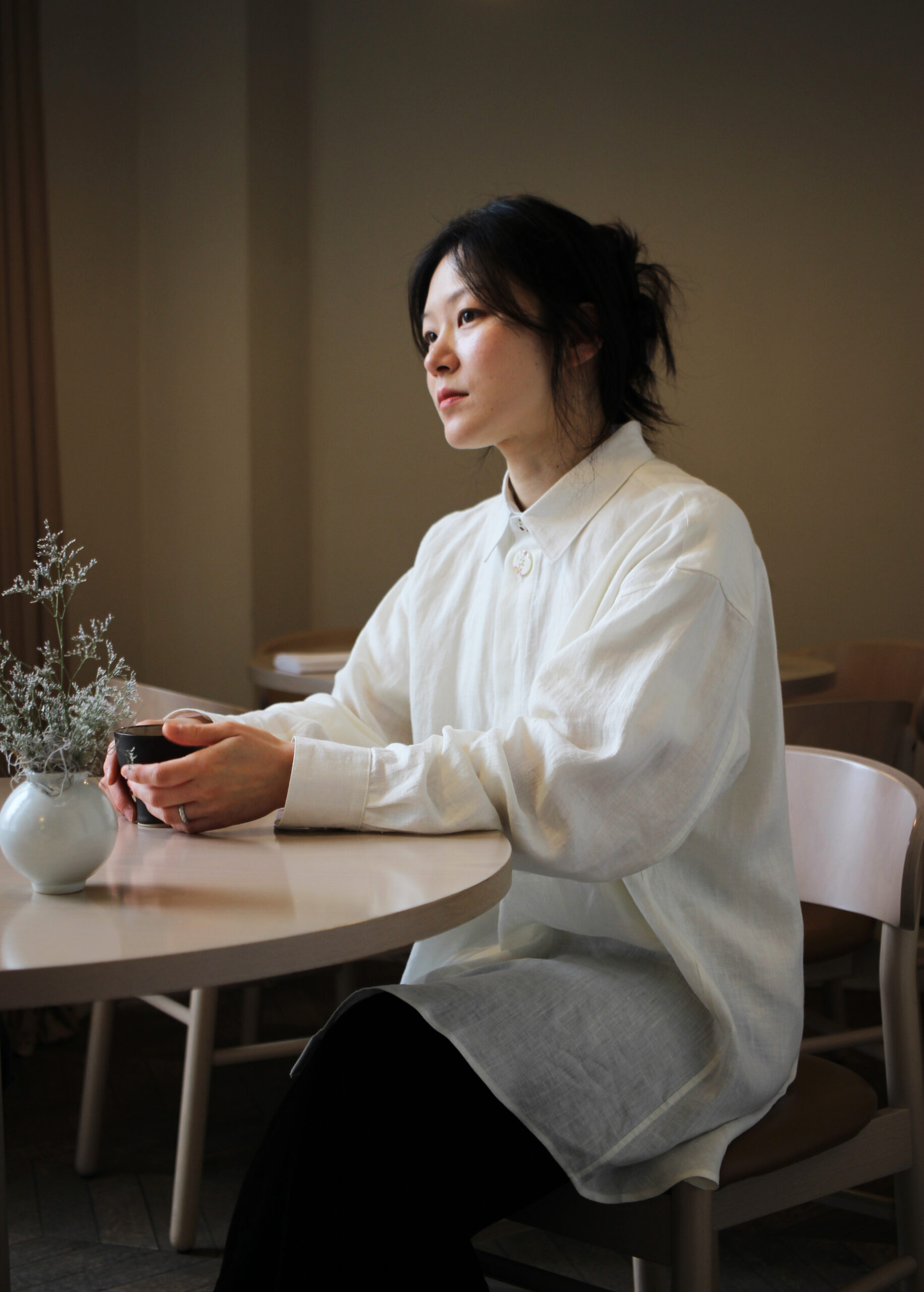
BK: Really?? Well when I was in high school I always watched it and saw he was always making something in a really easy way but at the end of the day he made a beautiful presentation of a dish, and his accent made me so curious about the UK.
PM: He’s so enthusiastic as well – the way he presents makes cooking really fun and achievable.
WP: I think he brought so many people in the world to become chefs.
BK: Yes, I think so too. So that’s really why I chose Cordon Bleu in London.
PM: Was it always your idea to combine French and Korean cuisine? Or is that something that’s just happened over the course of time?
WP: You wanna go first??
BK: No you go.
WP: For me, I’m sure you’ve noticed already but since I was little I’ve always had very strong characteristics and I have always known what I wanted. So this has been the same with cooking but as I’ve got older, I’ve sort of guessed more, so it’s not like ‘I don’t like it, I’m not doing it’ anymore. But when I was in the culinary school , all I wanted to do was eat and cook Japanese and French, I never wanted to do Korean, never Chinese or Italian. I don’t know why. But I noticed in the school that 90% of people think European food is just Italian or French, and I really wanted to learn French cuisine – it goes back centuries and the tradition is so strong.
Twenty years ago, I wasn’t as interested in Korean food. I liked to eat it, but I was more interested in learning about French cuisine instead. So after the army I knew I wanted to go to culinary school, so I started at a school in Korea and did that for two years. And then I decided I wanted to learn French cuisine from scratch, even though I say 70% of what I learnt in Korean school was French based. But I wanted to learn from the French chefs. So that’s how I started and I learned what I liked. I worked at The Ledbury, which is not French cuisine, but I believe any Western chef, unless they are an authentic Italian chef, they learn with the foundations of French cuisine.
But I believe we’re a global generation, so you learn and work wherever you like and I believe that affects you, so I wanted to adapt like that. As I got older, mentally as well, you want more of less. I started wanting to explore more of my Korean roots, and as a chef, the food was getting more interesting. I’m pretty sure we know a lot more about the cuisine than most people in Korea, because you study and then you’re curious about cooking and then to pull from what we’ve learned. But then, you have two little Asian people wanting to cook French food and people are like “What are you talking about?!”. But you can’t step away from the facts as well, and it has different advantages. But we know our strengths, we are Korean, but we can cook French as well.
PM: It’s your new gained knowledge and your Korean heritage, it makes you look at your food in a different way, adapting one to the other – the strength of the Korean with the undoubted foundation of the French cuisine. This leads to something so special, that only you can create with your mind and your experience.
WP: Yeah I think all of that.
So, as I was saying. I think humour is really important, and I think a chef’s character comes across in the kitchen. So I have learnt how to be a French chef, I’ve learned French cuisine. But I’ve been groomed into Korean food by my Korean parents, so I can’t shy away from that…
PM: That’s your heritage, that’s so important. You can’t dismiss that, can you?
WP: Absolutely, and your personality will be on top of that as well. There will be another person who has had exactly the same experience as me, be the same nationality, but the personality will be different.
PM: 100% – that’s what would make you a completely different chef. The nuances you bring to the table would be so different.
WP: So I think that’s what naturally comes up. But we also planned to come to London, so we were thinking what could be good for us…
PM: Bomee, was your route more obvious as a patissiere? One would imagine it’s either French or nothing?!
BK: Yes, no doubt. We are quite similar in that we have the same goals, similar personalities…
WP: Our personalities are totally different!
PM: How so??
WP: Our personalities and styles are totally different.
PM: But you need that, that yin and yang.
WP: Exactly. But what she likes, her interior style and the food she likes, nearly 100% the same. But personality is totally different.
BK: Ok yes!
WP: I believe you can see that already!
PM: Very much so, it’s a lovely mix.
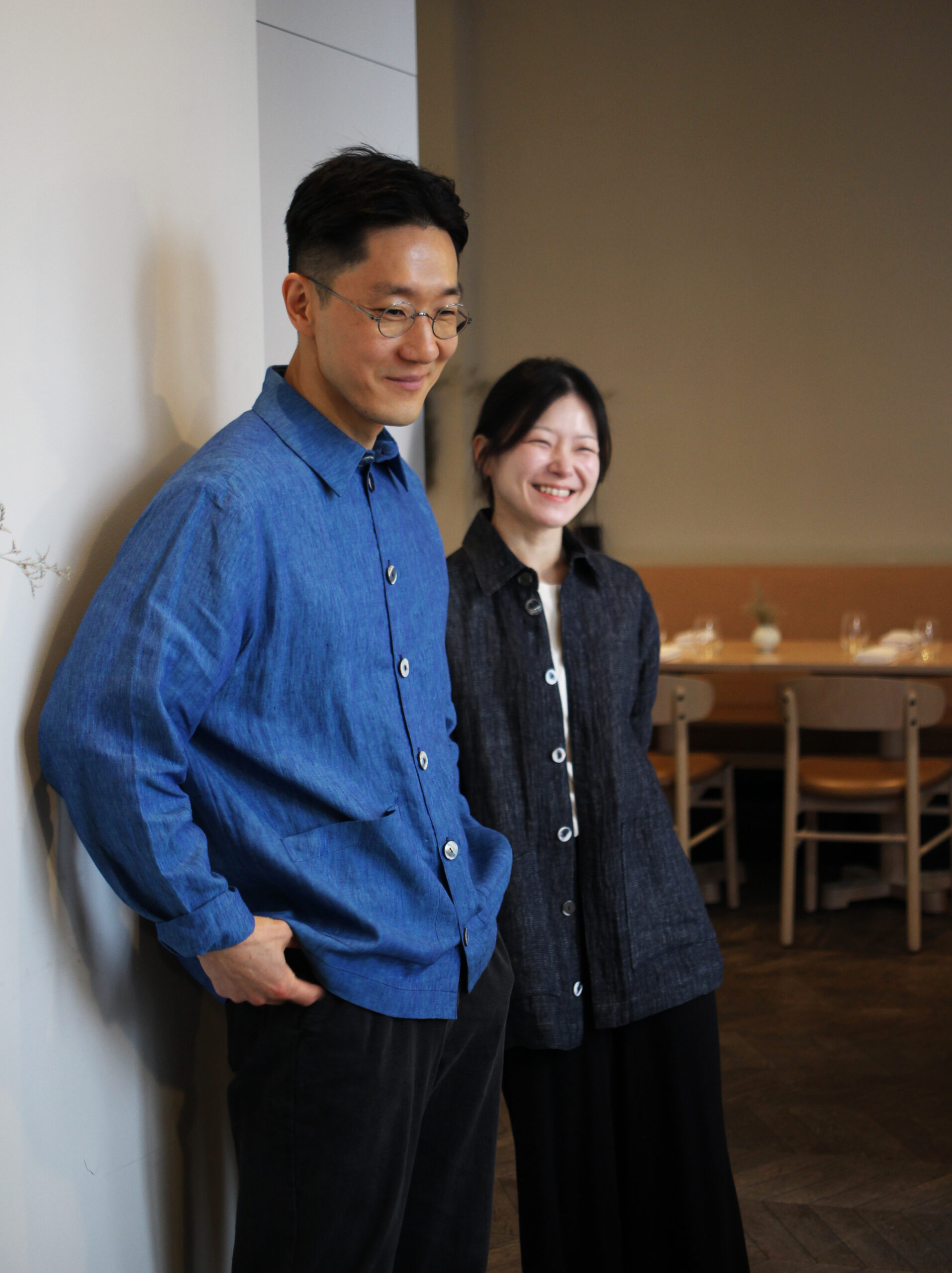
BK: But in terms of our goals and our careers, it’s very much the same. We’re based in French and we believe the foundations and the basics are the most important things. Once you are good and you’ve built your foundations step by step, you can add something on top, so this is what we always think about. When I stepped into the Cordon Bleu pastry world I was really shocked because they have so many ranges of things I had to learn and study to make my own skills, so there was no chance to learn something else, even Korean desserts or Korean cuisines. I had to really focus. Breads, pastries, ice creams, chocolates, jellies, they have so many ranges I had to focus on and for me, it was about being really professional and that’s why when I got back to Korea I wanted to find somewhere that I could learn more of the French techniques. It’s a mix for us now, because we are Korean, we’re proud of that Korean heritage and we want to bring that into the mix. There are so many nice ingredients and talented artisans.
PM: There’s so much to appreciate and there’s a way to blend the two that you’ve done that’s this sort of refined curation.
I’m interested to know how you mix the work life and home life, because obviously, this is all encompassing isn’t it? Running a restaurant is one thing, but running a business is completely different.
WP: It wasn’t easy, but for us, I know how hard it is, so I know other husband and wife teams, how much they struggle to make it happen. Compared to others, I think ours hasn’t been easy, but easier, because in the kitchen, I can’t say we have any issues because I respect her more than myself, and I think she respects her too, because she is better!
BK: That’s so nice!
WP: But I say to other chefs, I have never seen any chef like Bomee, she’s such a perfectionist and she tries as well. She doesn’t compromise, which is good, but it does make some other people very tired as well! But I rely on her style, and I trust that a lot, and I lean on that, more than 50%. So what I can do to support her, what I can do to make our family happier, is to respect what she can do.
There’s no right answer, but we believe our style, what we want is right. It took a while to get there but it works well in the kitchen, because our styles are different and what we do is different. I like to have fun and manage people, but for some that’s energy consuming. For me it’s not at all.
PM: You’ve got an introvert and an extrovert.
WP: Exactly. So we know our major jobs are totally separate and it works.
PM: That’s really important to have clearly defined roles. That separation matters so you’re really focused at work with what you are doing.
It’s great teamwork.
WP: It’s not that we’ve found the final solution, but we have to keep trying and that’s how we did it.
BK: We just couldn’t have done it without the support of our family and friends. At the beginning, during lockdown, it was quite tricky, but the support we’ve had is so important.
WP: Yeah, some people say “Oh, how amazing, how do you do it?” but I know what they’re talking about, and we’re happy to hear that. But I think we knew we were going to come here and do this, so we had to make it work. It wasn’t going to be easy, but I don’t know, I always think if there’s no hard time, if life was all easy, why is it that only a few people have that success? If everyone made what they want then you can say life is easy, but as you get older, you learn you can’t just do whatever you want, you have to work hard. We knew we wanted to come to London and do our thing, and we knew we can’t give up without trying.
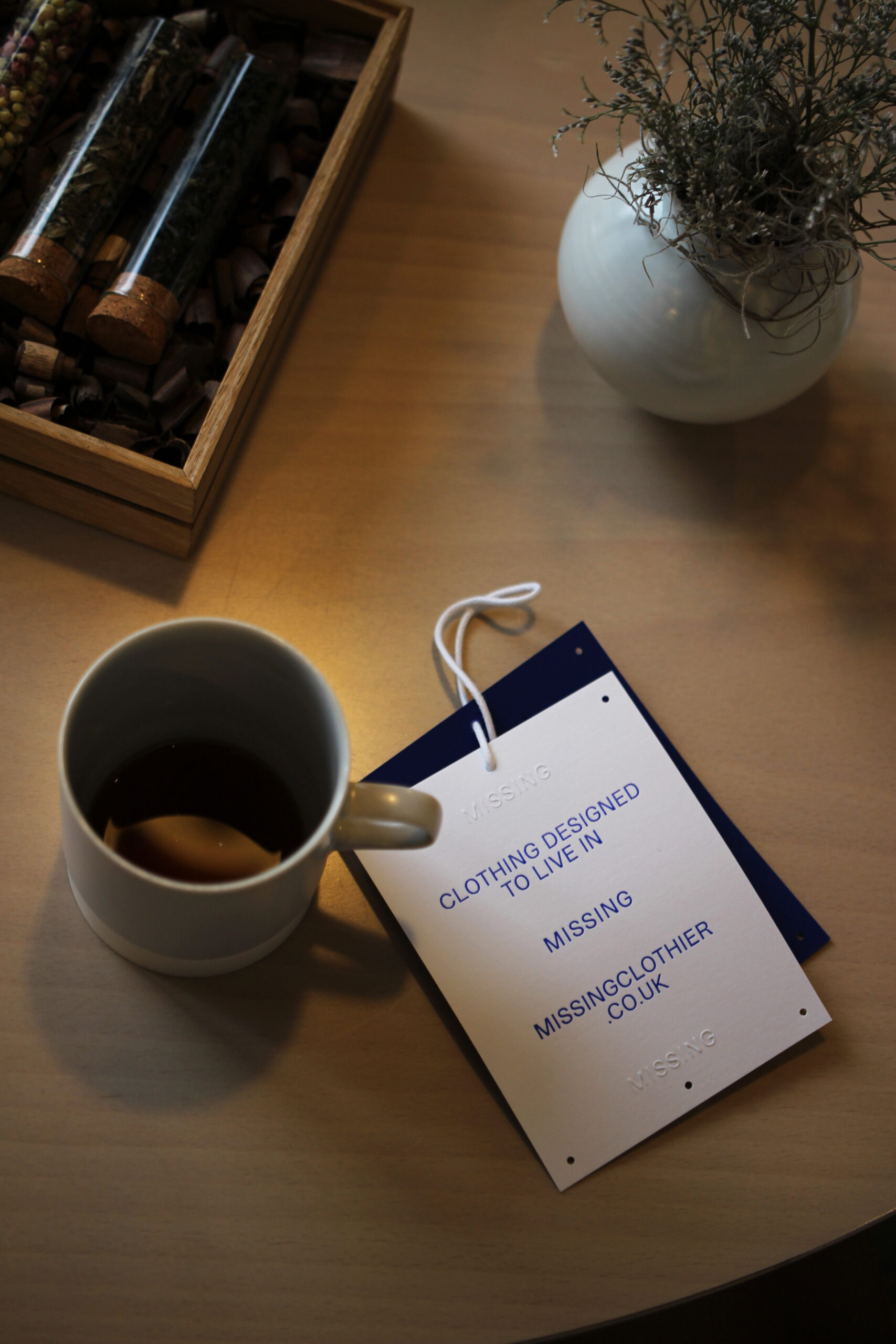
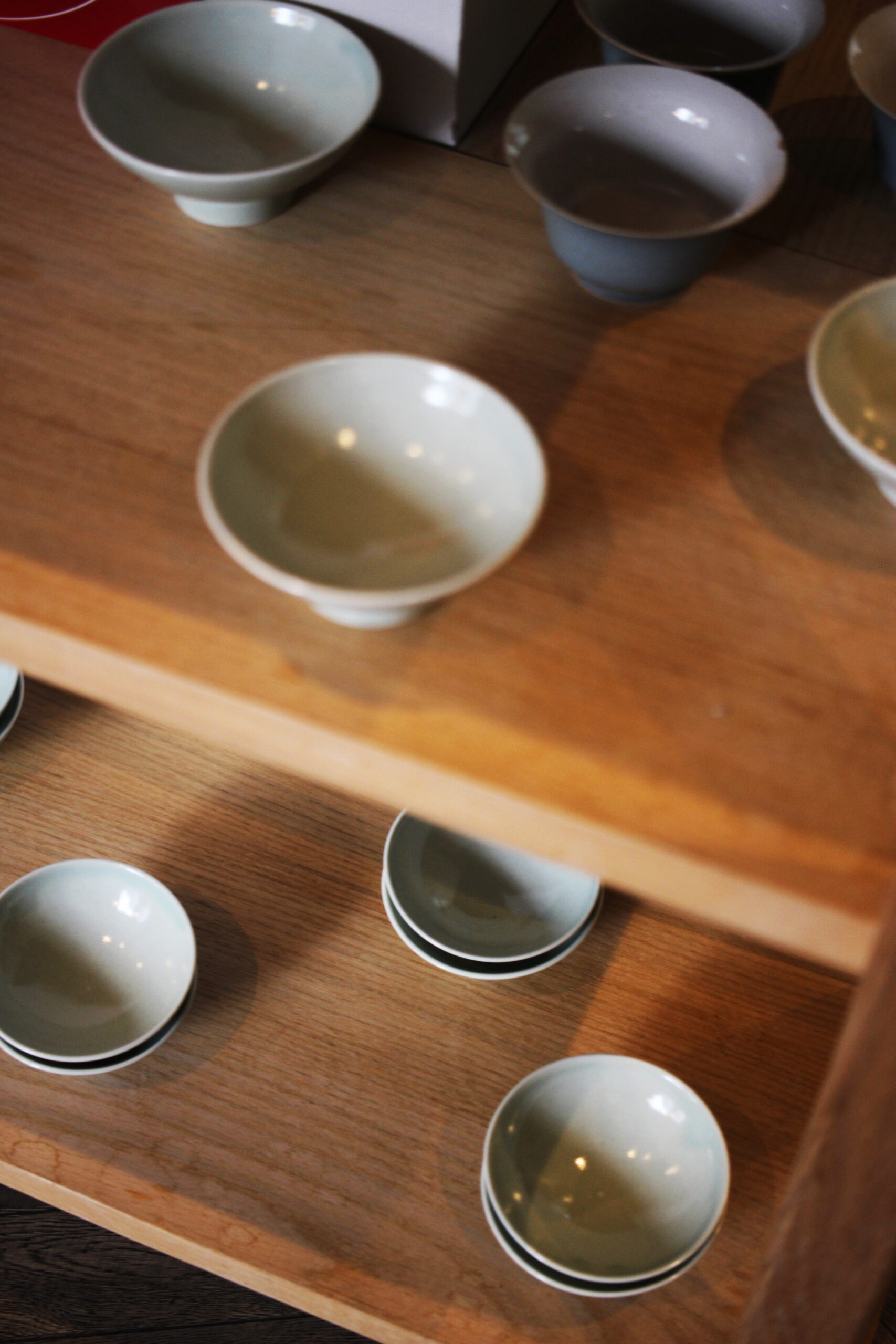
PM: It’s such a calm ambience in this room. Was it a conscious decision to have a smaller space? Is it more controllable, is that why?
BK: Yes, that’s what we wanted. Now we have 28 seats and at the weekend we turn 1.5 on that.
PM: And the decision of a set menu, is that out of control or ingredients led?
BK: So our plan was to bring a tasting menu, because that’s the best way to represent our story, but after lockdown finished, people are quite scared to go out, and with fine dining you have to sit down for 2-3 hours, so we just decided to open with an a la carte menu. About 6 months later we brought out a tasting menu and have kind of continued since then.
PM: And how often do you change the items on the menu?
BK: Seasonally, so 4 times a year? It’s mainly down to the ingredients.
WP: We wanted to do it every 3 months, but we noticed it’s too stressful, and also the seasons don’t work like that. So when we feel it’s time to change it, we know it’s time to change.
PM: I think that time frame’s really good. You know, you set a menu, a writer comes and reviews it, a few months later I read it and make a booking, but the menu’s different to what I was looking forward to – changing a menu too soon feels like a risk to me, so I think that timing works really well.
BK: We have a few things that are our signature menu, so people always get that offering, but then seasons change, so we want to have a seasonal range as well. We also like to create something new, it’s good for the guests, it’s good for our staff and it’s great for the chefs. But if we change too often we can’t make that great quality all the time, we have to train and get used to it, so that’s really important too. We have to test and test again, to check it’s the quality we want to offer.
PM: Can I just say, I’m open to testing. If you ever need help, just call me!
BK: Oh great! Lovely!
PM: You mentioned Michel Roux Jr earlier. Have you worked with him or is he someone that has been supportive?
WP: No, I never worked with him. I used to work with Pierre Koffmann. Actually we had lunch yesterday.
PM: Oh really.
WP: Yeah. He was actually one of those legendary chefs for me, so that fact that these chefs from France were here as well, that made London feel even better.
PM: I think the London chef scene seems a very open, welcoming, knowledge sharing space. Will Bowlby from Kricket mentioned both Pierre Koffmann and Michel Roux Jr as well, saying how supportive and helpful they were. It is so nice to hear people at the top wanting to help people along.
PM: So do you have a favourite restaurant in London?
BK: Oh yeah.
WP: And it never changes! That’s the problem. We love The Ledbury a lot.
PM: The Ledbury is top notch.
WP: And we love Noble Rot as well. The Lambs Conduit one.
PM: There is something so special about the Lambs Conduit St restaurant, it’s really lovely. And you work with them for your wines, is that right?
BK: Yes.
WP: Yes, I really like them.
BK: Yes, they’re friendly staff, nice service, nice people, nice atmosphere – it’s always inductive – nice, warm and cosy.
WP: And the private dining room in Mayfair is so good. Really, really nice.
BK: We had our staff party there last Christmas, it was really, really nice. The interiors are so lovely, it makes such a difference.
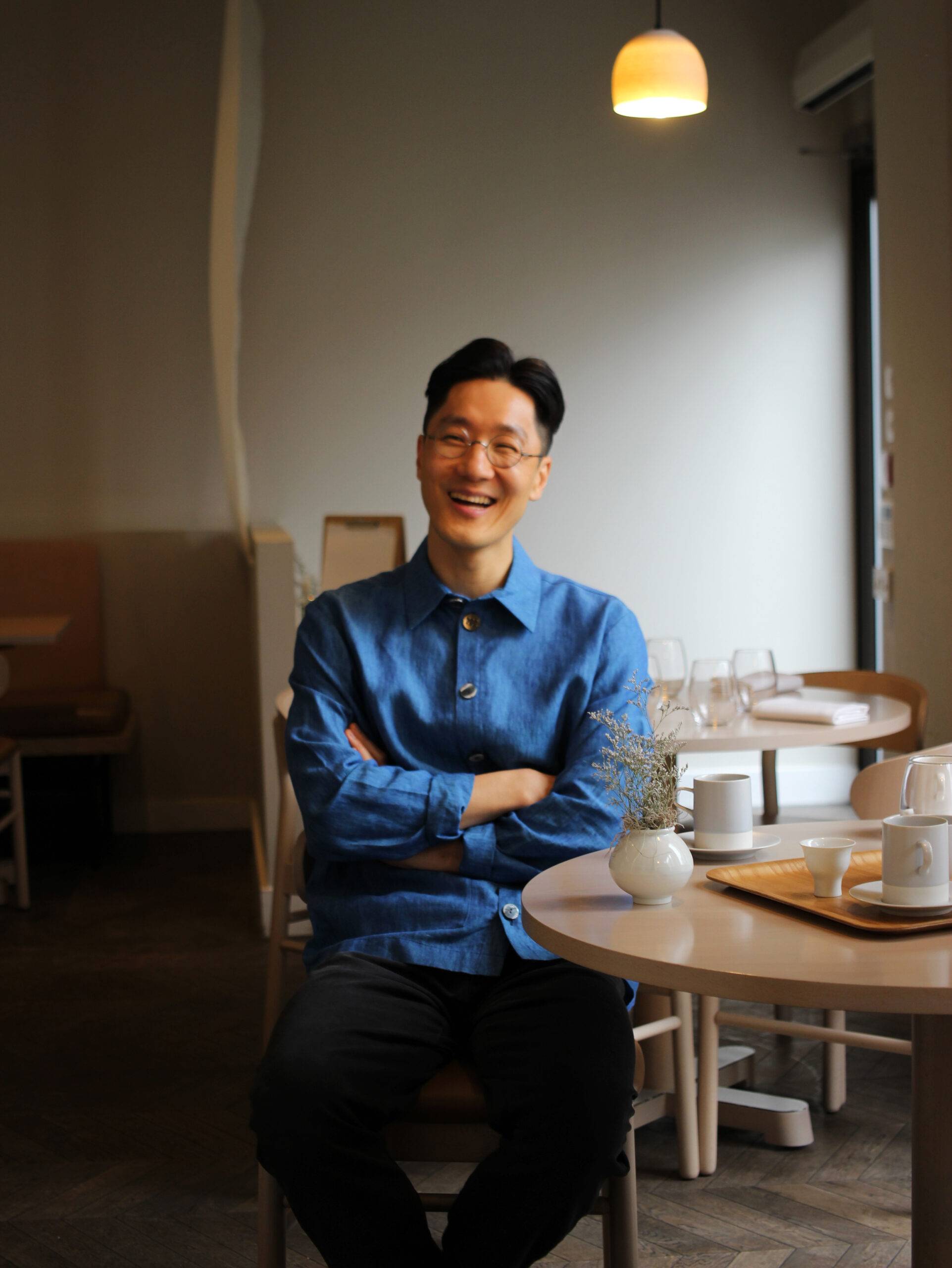
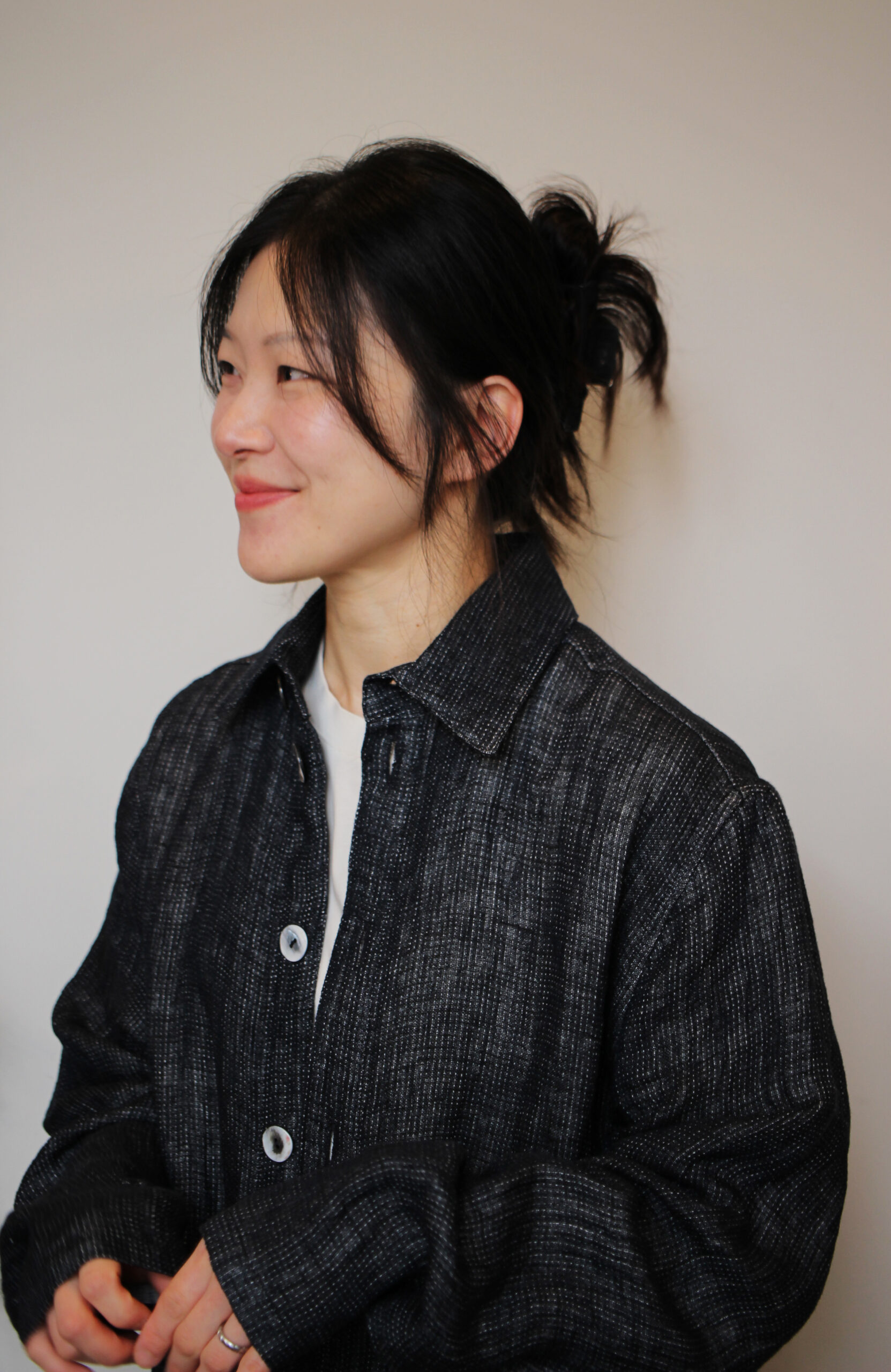
PM: So the kids, boy and a girl?
BK: Yes, an older brother and a daughter. And I must say, being a good mother is so much harder than being a good chef! When I work in the kitchen I’m much calmer, I know exactly what to do – I find a problem, I try to fix it, I figure it out, job done, but when I go home, oh my god!
But thankfully they’ve adapted well to English life. And they’ve started saying ‘I want to be a chef’ and if they really want to, we want to support that.
PM: That’s so nice. Do they come in here with you?
BK: Yes, yes.
PM: That’s brilliant. So they’re naturally absorbing that.
BK: Sometimes too much! When we got the Michelin stars, suddenly everyone at school knows! Last year, we were invited to Buckingham Palace and the next day they were telling everyone at school!
PM: That must have given you a warm glow though, because for them to have wanted to talk about it, for them to be that proud, that’s a really nice thing.
BK: Yes, it really is.
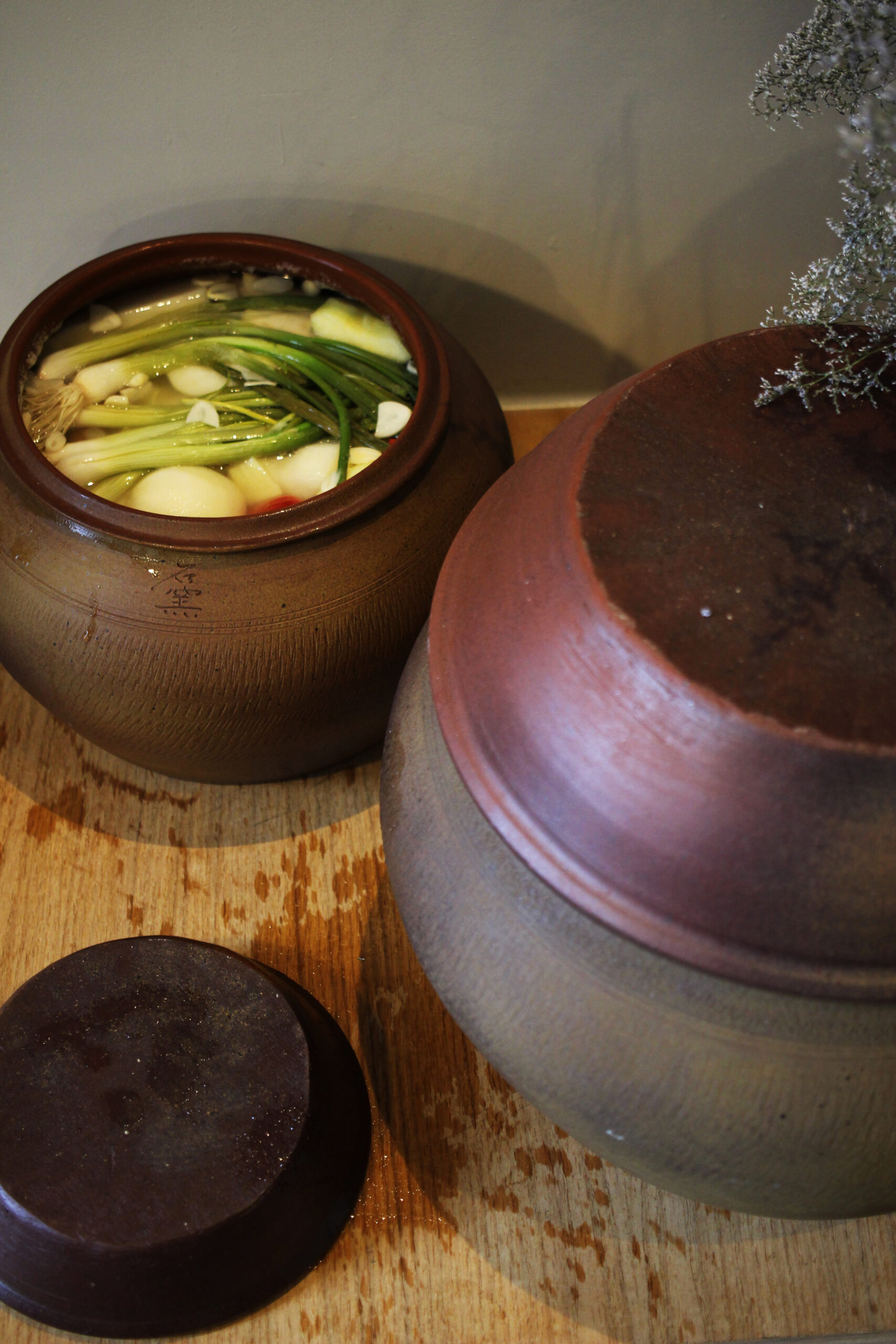
BK: (Observing the clothes) I can’t tell you how much I love the colours, these clothes are so lovely.
PM: Thank you so much! We’re very particular about every component, from the linen being made for us, where it’s constructed, and the construction. The same way that you are particular with the ingredients you use, the way in which you prepare it, and the way in which you present it to your customer. That’s why we wanted you to be a part of this, we felt there were so many similarities. And the experiences you’ve had to go through, you know lockdown, Brexit, certain things become harder to come by, these are things that have affected us as well. So that’s why this series of conversations came about. And then we are very, very serious about food as a family. Our son is a writer, our daughter has written food books.
WP: Oh really? What’s your favourite restaurant?
PM: Noble Rot, Endo, The French House – places we always go back to. One last question, what is it that you like about the MISSING clothes?
BK: I really like them. I love the clothes, but I really love the story. I know the story and I think the product is not just a product, it’s so much more. Everything about the story and the human side I like. Seeing the pieces, I connect differently and see the quality. Everything is so meaningful and very comfortable. I love the lines, the colours, the patterns.
WP: I think it’s even more special because of that human aspect. It’s even more important, now that we’ve met, I feel more invested and the clothes feel even more special. Meeting the maker makes such a difference. She knows more about these kind of things, but I like easy clothing. But this is not just easy, I don’t know how to explain it, it’s not easy to make these things with such detail.
PM: That’s really nice to hear and means so much, thank you. Most people think “It’s a jacket, it’s a shirt, It’s not important where it comes from. They care about how much it costs and how it looks, not about the back story or meeting the maker.”
Woongchul wears the M07 Ivory Classic Shirt (Coming soon) and the M01 Denim Two Pocket Jacket.
Bomee wears the M08 Ivory Oversized Shirt (Coming soon) and the M01 Jet Two Pocket Jacket.
May 22nd, 2024
SOLLIP Unit 1, 8 Melior Street, London, SE1 3QP
Opening Times
Wednesday – Thursday : 18:00 – 21:00
Friday – Saturday : 12:00 – 14:30 and 18:00 – 21:00
Photography: Izy Dixon